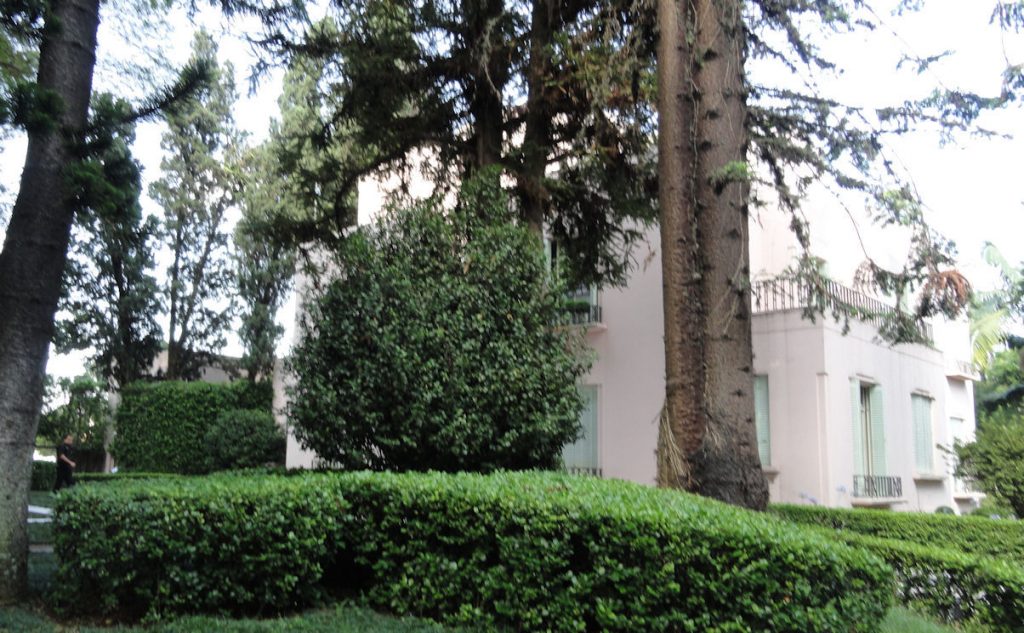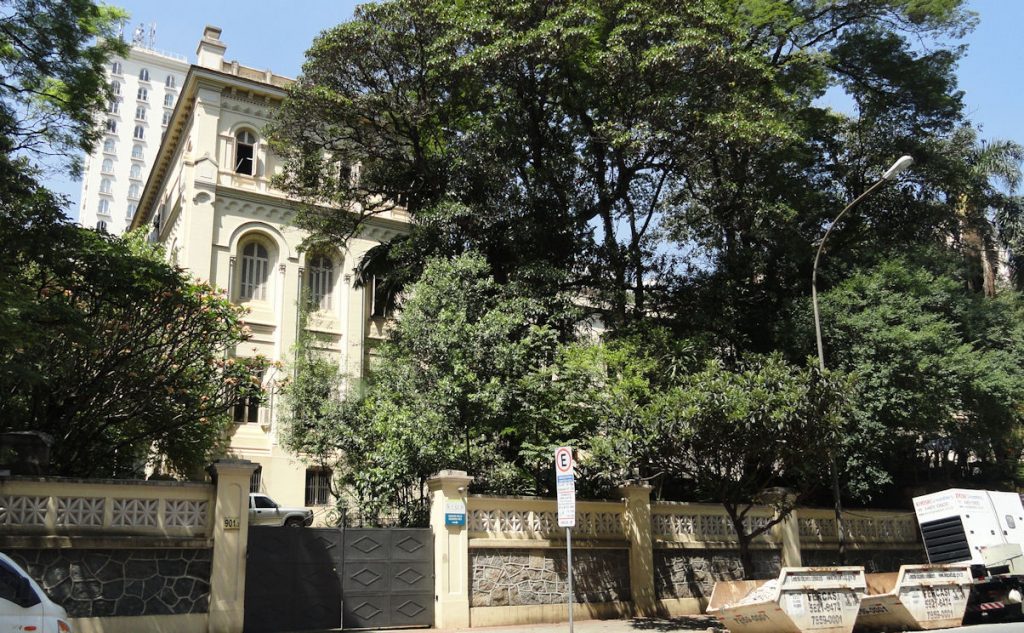
My travel budget is cut. Luckily, I had already been taking steps to save money. We try hard to get the least expensive tickets, sometimes saving hundreds of dollars by going earlier or later and/or avoiding peak periods. On my last trip to São Paulo, I used Marriott points to pay for the hotel and I how have enough points on TAM to get a free trip next time I travel. But these can only count for so much. You have to stay about five times before you can get a free night, for example. Nobody can live off of this. We have to make serious cuts, consolidating trips and sometimes just not going. It will impact our staffs around Brazil and I expect to sometimes be less popular than I otherwise would be when I have to say no. But I will still say yes most of the time, maybe with modifications.
I consider being places, boots on the ground, to be the essence of our work. Diplomats have to see and be seen. It has always been thus. Sometimes this is the whole task. When I was in Iraq, one of my most important jobs was to walk around in the villages and be seen. I worried a little when a police chief I had not yet met told me that he already knew who I was because my Anbar village walks were locally famous. I figured that if he knew it, so did the bad guys and it could be dangerous, but I trusted the Marines to keep me safe and they did. I think my walks did some good to calm the situation. And they did help me develop and use my banana index.

Of course, you can learn a lot from secondary sources, i.e. books, internet, TV. Most of what anybody knows if from secondary sources, but I learned the hard way that you learn things by being places that you cannot easily measure and may discount. The mistake has to do with a persistent bias. Once we learn something and integrate it into our knowledge base, we often think we knew it already. That is why it is sometimes so hard to convince people that an idea is good but just as hard a short time later to convince them that they didn’t always believe this.
I was putting it in this context with my recent visit to São Paulo. I went there because I thought it was important for me personally to meet a delegation from NEA-F, get their perspective and give them ours. Could I have done this at a distance? Maybe. But I think I have a much better feel for their perspective and they understand ours. When I made related decisions later, I will be better informed. But there is more.
Besides the NEA-F meetings, I got a chance to have a long talk with some of my São Paulo Brazilian and American colleagues. They told me about some of their problems and aspirations. I am in daily contact with them via email etc. but I still learned some things AND showed my own personal commitment. They can tell when I am serious and what I might just let go and I get the same back.
Beyond that, I had some good meetings with people and institutions I would not have known. For example, at Fernand Braudel Institute I learned about reading circles, which use the classics to bring marginalized kids into the mainstream. I am not sure what I will do with that information and of course I could have read about it, but it is not the same. I also went to an environmental organization called Instituto Socio-Ambiental. We used to have good relations with them, but we kind of drifted away. My visit was a good pretext to come back. And this visit shows the usefulness of connections.
I listened to them talk about their projects with indigenous people, quilombos and environmental restoration. (A quilombo is a settlement originally of escaped slaves. The 1988 Brazilian constitution granted such communities communal property rights similar to those of indigenous people.) I thought of connections they might make with the U.S. Smithsonian came to mind, maybe because Smithsonian was so recently down in Brazil to set up connections. They saw what a great place Brazil really was. People hear about this, but when they actually see it, it makes a big difference. And I knew just who to call. I got an answer the same day. It might be the start of a sustained institutional linkage that happened only because of boots on the ground.
Finally, I had a chance to meet with alumni of our youth programs and our youth council. They like to talk to us and it gives me a chance to hear what young Brazilians have to say. Not surprisingly, they are interested in their future careers, but they also gave me something concrete to think about. We talked a little about social media. They said that they and their friends were getting sick of Facebook because it was too uncontrolled. They use twitter more to communicate more precisely. Facebook is a central part of our social media strategy; if it is going into decline we need to move to other platforms. But that is another story.
I have to figure out how to do more with less. I think the way to do that is to go after the little things and the big ones, i.e. work those discounts I mentioned above but also identify the bigger money sinks. I have found a few already. It is the old 80/20 Pareto principle rule of thumb. It is good to try to save the taxpayer money. I have always tried to do that. But I do also believe in the mission I am sent to accomplish and I don’t want to save my way into ineffectiveness.
I truly believe that this is a time of great leverage in U.S.-Brazil relationships, a golden opportunity, when Brazilian development has taken off to the extent that we really have a great field for cooperation but before conditions have stabilized. The connections I help foster today will link our great nations for a generation. It is good work and it is important that I do it well. Brazil is an important country. We have a lot of common interests, lots of areas of big win-win for everybody. I won’t lose sight of this in an effort to save a few dollars … but I will save a few dollars.
My top picture is Ferdand Braudel Insitute. Below is ISA. They are both in nice areas of São Paulo called Higienopolis, the old Jewish section of the city.
